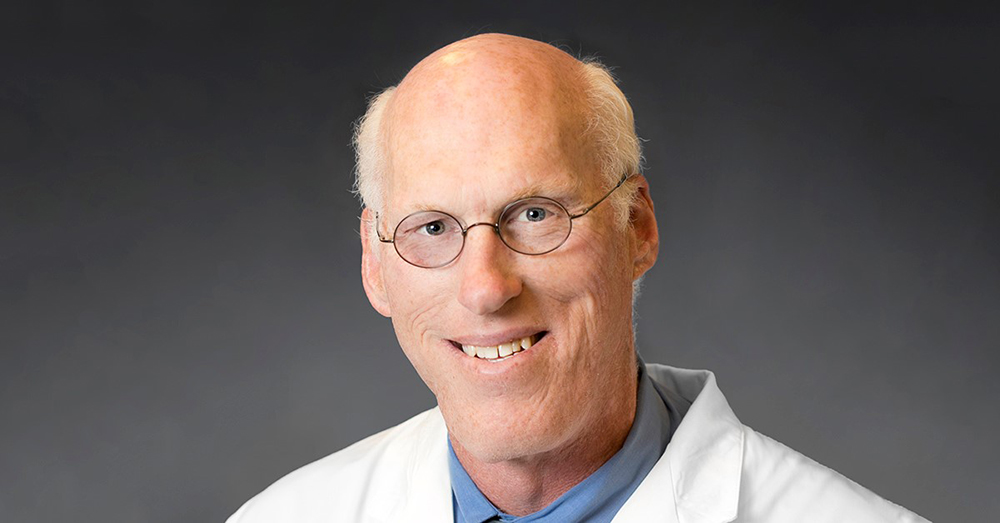Drug Use, Family History Can Lead to Heart Disease in Younger Adults
Abstinence, early detection is key to prevention

Scott Shurmur, M.D.
Heart disease is the leading cause of death in the United States and it doesn’t necessarily discriminate against age or lifestyle. A family history of heart disease or substance abuse can trigger a heart attack. However, abstaining from drug abuse and an early diagnosis of familial hypercholesterolemia (high cholesterol) can help prevent heart disease.
According to the Centers for Disease Control and Prevention, about half of all Americans, or 47%, have at least one of three risk factors for heart disease: high blood pressure, high cholesterol and smoking.
Some risk factors cannot be controlled, such as family history. It’s possible to appear healthy on the outside but still be at risk for heart disease.
“There are some genetic conditions that would qualify for that circumstance,” said Scott Shurmur, M.D., a cardiologist for Texas Tech Physicians and chair for the Department of Internal Medicine at the Texas Tech University Health Sciences Center School of Medicine. “For instance, there’s something called familial hypercholesterolemia, either heterozygous or homozygous form. One is sort of partway there and one is fully there. Both forms results in genetically very high cholesterol levels throughout adult life, so no matter how careful you are with exercise and managing your weight and avoiding smoking, which are all extremely valuable, you may have a genetic condition which markedly elevates your cholesterol.”
The condition is not rare. Shurmur said it’s found in one in 500 individuals and may be more common than that.
“But the good news is if we identify that early in adult life and begin to treat it, most of that excess risk is eliminated,” Shurmur said.
Although some might associate heart attacks with adults older than 50 years, those in their 40s and younger might be at risk for heart disease more than previous generations for reasons including diabetes, obesity and drug use.
“I think there are two main reasons for that,” Shurmur said. “The first is substance abuse. The actual ingestion of cocaine or methamphetamine can trigger a heart attack. Even if that ingestion doesn’t cause an event at that point, gradual use over time wears out the heart muscle and replaces it with scar tissue and leads to the development of something we call heart failure, which means that heart can no longer perform at top capacity.”
Related Stories
Celebrating Veterans: TTUHSC’s General Martin Clay’s Legacy of Service and Leadership
From his initial enlistment in the Army National Guard 36 years ago to his leadership in military and civilian health care management roles, Major General Martin Clay’s career has been shaped by adaptability, mission focus and service to others.
Texas Tech University Health Sciences Center School of Nursing Named Best Accelerated Bachelor of Science in Nursing Program in Texas
The TTUHSC School of Nursing Accelerated Bachelor of Science in Nursing (BSN) program has been ranked the No. 1 accelerated nursing program in Texas by RegisteredNursing.org.
TTUHSC Names New Regional Dean for the School of Nursing
Louise Rice, DNP, RN, has been named regional dean of the TTUHSC School of Nursing on the Amarillo campus.
Recent Stories
The John Wayne Cancer Foundation Surgical Oncology Fellowship Program at Texas Tech University Health Sciences Center Announced
TTUHSC is collaborating with the John Wayne Cancer Foundation and has established the Big Cure Endowment, which supports the university’s efforts to reduce cancer incidence and increase survivability of people in rural and underserved areas.
TTUHSC Receives $1 Million Gift from Amarillo National Bank to Expand and Enhance Pediatric Care in the Panhandle
TTUHSC School of Medicine leaders accepted a $1 million philanthropic gift from Amarillo National Bank on Tuesday (Feb. 10), marking a transformational investment in pediatric care for the Texas Panhandle.
Texas Tech University Health Sciences Center Permian Basin Announces Pediatric Residency Program Gift
TTUHSC Permian Basin, along with the Permian Strategic Partnership and the Scharbauer Foundation, Feb. 5 announced a gift that will fund a new pediatric residency.
